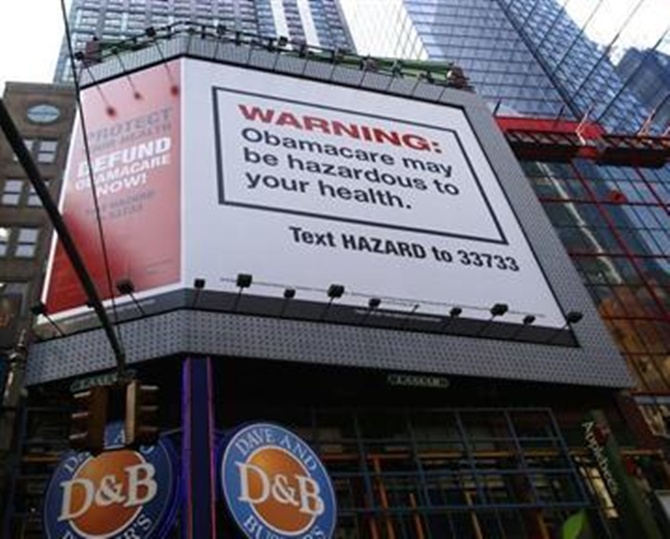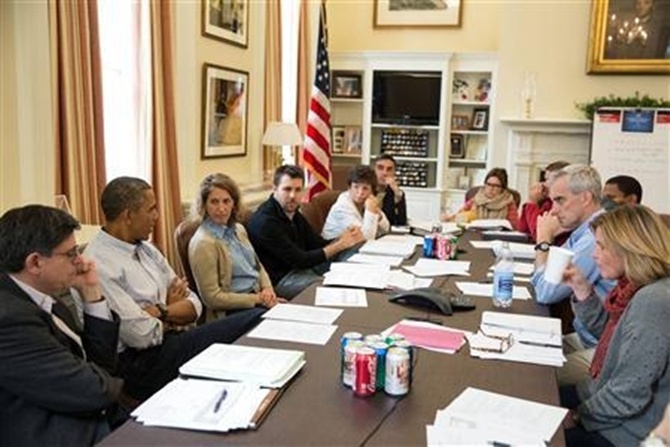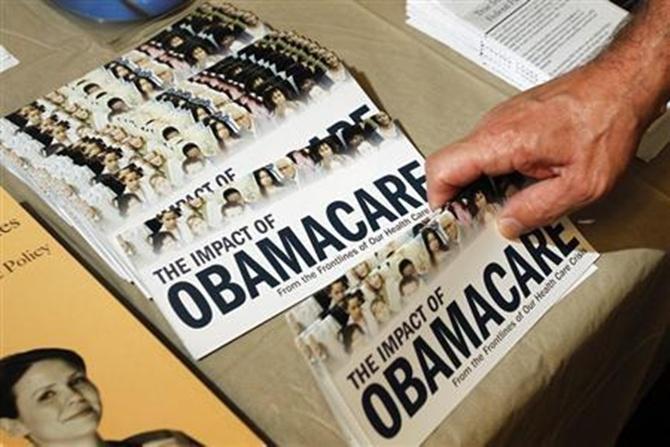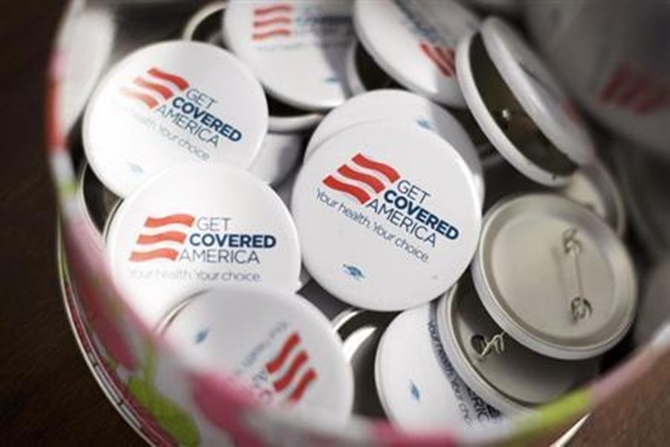Photographs: Mike Segar/Reuters
The US government began a partial shutdown on Tuesday for the first time in 17 years, potentially putting up to 1 million workers on unpaid leave, closing national parks and stalling medical research projects.
Federal agencies were directed to cut back services after lawmakers could not break a political stalemate that sparked new questions about the ability of a deeply divided Congress to perform its most basic functions.
After House Republicans floated a late offer to break the logjam, Senate Majority Leader Harry Reid rejected the idea, saying Democrats would not enter into formal negotiations on spending "with a gun to our head" in the form of government shutdowns.
The political dysfunction at the Capitol also raised fresh concerns about whether Congress can meet a crucial mid-October deadline to raise the government's $16.7 trillion debt ceiling.
With an eye on the 2014 congressional elections, both parties tried to deflect responsibility for the shutdown. President Barack Obama accused Republicans of being too beholden to Tea Party conservatives in the House of Representatives and said the shutdown could threaten the economic recovery.
Here is a roundup of the impact of the US shutdown:
Federal workers: As many as 1 million U.S. federal employees could face unpaid furloughs or payless paydays, according to the president of the American Federation of Government Employees, which represents 670,000 union members.
National parks: National parks would close, meaning a loss of 750,000 daily visitors and an economic loss to gateway communities of as much as $30 million for each day parks are shut, according to the non-profit National Parks Conservation Association.
Defense department: All military personnel would continue on normal duty status, but many civilian employees would be temporarily furloughed, Deputy Defense Secretary Ashton Carter said in a memo. He said furlough notices would be issued on Tuesday, October 1, if no agreement to fund the government is reached.
…
How the US government shut down will affect services
Image: US President Barack Obama meeting with senior staff in the West Wing of the White House.Photographs: Reuters
The ratings agency Standard & Poor's said a shutdown of less than two weeks would not materially affect the credit of big defense contractors, though a longer shutdown could weaken smaller defense contractors. Most defense contractors would not be paid, new contracts would not start and orders would be delayed, with service contracts hardest hit, S&P said.
Internal Revenue Service: Most of the federal tax agency's 90,000 employees would be furloughed. Taxpayers who requested an extension beyond the April 15 deadline to file their 2012 taxes must do so by October 15, and they will still be able to file these returns even if the IRS is still shut down then.
Federal reserve and other financial agencies: The Fed would stay open, since it does not depend on congressional appropriations to operate; so would the Consumer Financial Protection Bureau, which the Fed funds. The Federal Deposit Insurance Corp and the Office of the Comptroller of the Currency pay for themselves and would remain open.
The Commodity Futures Trading Commission has been rushing through approvals for a new, untested type of trading platform ahead of a possible shutdown, its top regulator said.
...
How the US government shut down will affect services
Image: A Tea Party member reaches for a pamphlet titled ''The Impact of Obamacare'' in Littleton, New Hampshire.Photographs: Jessica Rinaldi/Reuters
Justice Department: Fewer than 18,000 of the department's 114,486 employees would be furloughed, and if the furlough is prolonged, some of those could be brought back to work.
Criminal litigation would continue under a government shutdown, while civil litigation would be curtailed or postponed as much as possible "without compromising to a significant degree the safety of human life or the protection of property," the department said in its contingency plan.
Courts: The U.S. Supreme Court would probably operate normally, as it has during previous shutdowns, but a spokesman declined to share the high court's plans.
Federal courts would remain open for approximately 10 business days if the government closes on October 1, and would reassess on or about October 15.
...
How the US government shut down will affect services
Image: Get Covered America buttons are seen during a training session in Chicago, Illinois.Photographs: John Gress/Reuters
National Institutes of Health: The agency's research hospital in Bethesda, Maryland, would take no new patients.
US trade representative's office: Already squeezed by automatic spending cuts imposed by so-called sequester, the USTR office has cut back on travel to the 41 countries where there are concerns about intellectual property, Trade Representative Michael Froman said.
Environmental protection agency: EPA Administrator Gina McCarthy said this week that the agency would effectively shut down with only a core group of individuals available in case of a "significant emergency."
...
How the US government shut down will affect services
Image: A man fills out an information card during an Affordable Care Act outreach event hosted by Planned Parenthood for the Latino community in Los Angeles, California.Photographs: Jonathan Alcorn/Reuters
Agriculture department: USDA meat inspectors would stay on the job, industry experts said. Statistical reports would be delayed.
An October 1 shutdown would come as the agency is surveying farmers and checking fields for yields and acreage in advance of the October 11 crop report.
A government closure of more than a few days could delay the report, relied upon by traders and food manufacturers as the best estimate available of the U.S. food supply.
Washington, D.C., Sights: Some popular tourist spots in the nation's capital would probably close, including the FDR Memorial, the KennedyCenter for the Performing Arts, the Library of Congress, the Lincoln Memorial, the National Archives, the National Zoo and all SmithsonianMuseums.







article